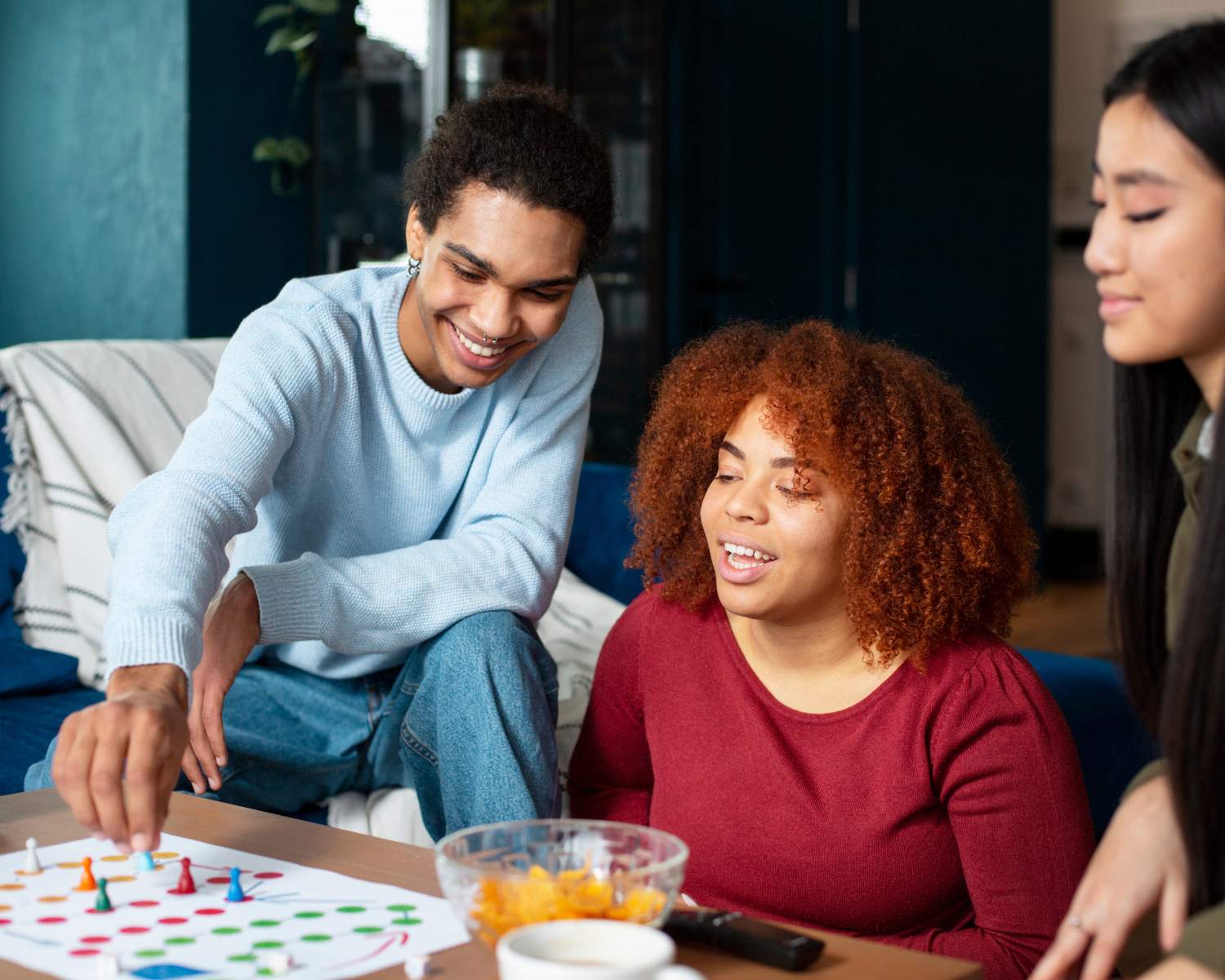Play Therapy for Children and Teens
At Connect Counseling Center, we know parenting isn’t easy, and it can be hard to watch your child struggle with their emotions. You want to help them, but sometimes talking just isn’t enough. That’s where Play Therapy comes in—offering a fun and safe space for kids and teens to express what they’re feeling, even when they can’t put it into words. We proudly serve families in Mount Juliet, Clarksville, and Cookeville, offering therapy that connects with young people where they are, using what they know best—play.

What is Play Therapy?
Play Therapy is exactly what it sounds like—therapy that uses play, games, art, and creativity as a way for children and teens to explore their feelings. It’s designed for those who may not yet have the language to fully explain their thoughts and emotions, but who can express themselves through the activities that feel natural to them.
Kids play out their worries, frustrations, and hopes using toys, while older children and teens might prefer more structured creative outlets like drawing, music, or storytelling. This gives our trained therapists insight into what they’re going through, so we can guide them toward healing.
What to Expect in Play Therapy
When your child or teen comes to a Play Therapy session, they’ll walk into a room that’s been thoughtfully designed just for them. There will be toys, art supplies, and games that help them feel at ease. The therapist doesn’t push—they let your child lead the session, choosing the activities that appeal to them. Whether they’re building with blocks, painting a picture, or role-playing, your child is free to express their feelings in a way that feels right to them.
The therapist is there to observe, offer guidance, and create a trusting space where your child can feel heard—whether that’s through their play or in the conversations that naturally unfold.

How Play Therapy Helps
Life throws a lot at kids and teens—school stress, family changes, social pressures—and sometimes they need more support than we realize. Play Therapy can make a difference for those facing:
➛ Behavioral issues: Dealing with aggression, defiance, or trouble focusing at school.
➛ Emotional struggles: Coping with anxiety, depression, or anger they don’t know how to express.
➛ Family transitions: Adjusting to divorce, a new sibling, or family moves.
➛ Trauma: Recovering from experiences like bullying, abuse, or other traumatic events.
➛ Social challenges: Navigating friendships, peer pressure, or feeling like they don’t belong.
➛ Big life changes: Processing grief, loss, or major changes that feel overwhelming.
In Play Therapy, children and teens can express themselves without pressure. Whether they’re showing anger through a game, creating artwork about their fears, or using dolls to work through a tough experience, this approach allows them to explore what’s happening internally in a way that feels safe and comfortable.
How Play Therapy Benefits Children and Teens
The benefits of Play Therapy go beyond the therapy room. Here’s how it can help your child or teen in their everyday life:
➛ Emotional Expression: Play Therapy helps them express complicated emotions in a way that doesn’t feel forced or uncomfortable.
➛ Trauma Healing: For children who’ve experienced trauma, play can be a gentle way to process difficult memories.
➛ Behavior Improvements: As they learn new coping skills, you might notice fewer tantrums, outbursts, or meltdowns at home or in school.
➛ Increased Confidence: Play Therapy helps them feel more capable of handling life’s ups and downs, boosting their self-esteem.
➛ Better Communication: Over time, children learn to express their feelings more clearly, which can improve their interactions with family and friends.
➛ Stronger Relationships: As your child begins to understand and manage their emotions, you may see improvements in how they connect with others—whether it’s siblings, friends, or even with you.

Play Therapy for Teens
Although we often associate Play Therapy with young children, it can be just as powerful for teens. Adolescence brings its own unique set of challenges, from academic stress to identity exploration to peer pressure. Teens often benefit from creative outlets like music, digital art, or writing as part of their therapy. These forms of play allow them to process difficult feelings in a safe and non-judgmental space.
At Connect Counseling Center, we understand the complexities of the teenage years. know how to meet teens where they are, heOur therapistslping them work through anxiety, depression, social issues, or family dynamics in ways that feel relatable to them.
Involving Parents in the Process
As a parent, you’re an essential part of your child’s healing journey. In some cases, we may involve you in Play Therapy sessions so you can learn ways to support your child at home. Our therapists work with parents to provide feedback and suggestions on how to strengthen the parent-child relationship, helping you foster a supportive and open environment that encourages emotional growth.
Ready to Begin Play Therapy?
If you’ve noticed your child or teen struggling with emotional or behavioral challenges, Play Therapy could be the key to helping them thrive. To get started, contact Connect Counseling Center to schedule a consultation today. We’re here to help your child find a safe, supportive place where they can heal, grow, and build the emotional tools they need for life.
Why Choose Play Therapy at Connect Counseling Center?
At Connect Counseling Center, we believe in the power of play to help children and teens heal and grow. Our skilled therapists are not only trained in Play Therapy but are also passionate about creating a warm and welcoming space for young pe/cookeville-therapists/ople to explore their emotions. Whether your child needs help overcoming behavioral challenges or your teen is working through emotional struggles, we’re here to support them every step of the way.
With locations in Mount Juliet, Clarksville, and Cookeville, we’re here to serve families in the surrounding communities. We offer both in-person and teletherapy options, so you can choose what works best for your family.
